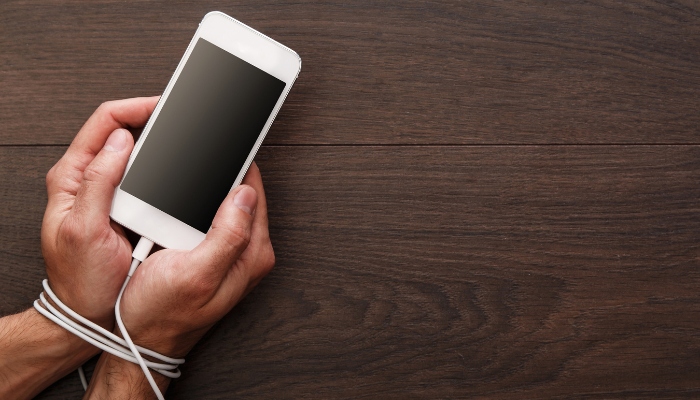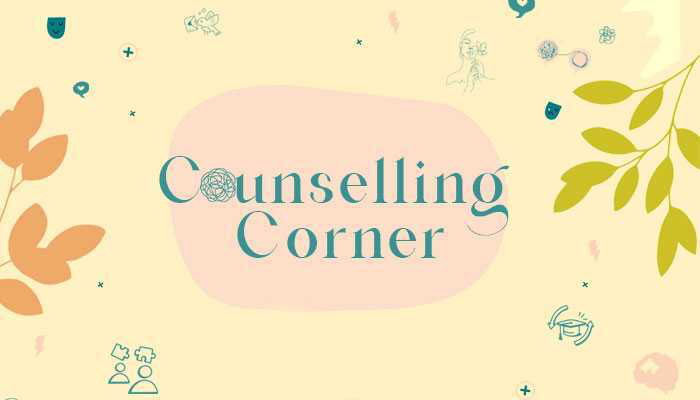'I'm addicted to social media. Please help me!'
"I feel like it's affecting my life in a negative way, especially now that it's also impacting my health," says a social media addict
February 19, 2025
Hi Haya,
I'm addicted to Instagram and TikTok. It's been a while since I got so obsessed that I literally have started losing my sleep over it, which is now impacting my physical health. This habit has also started affecting my work, as I always end up picking up my phone in between getting tasks done.
I have tried to implement the pomodoro method and even that has failed to help me. I've tried to convince myself to sleep early, but somehow I just wake up in the middle of the night and would just reach out to pick up my phone on the bedside table. I've also tried deleting the apps for a day or two, but then I get asked by my friend why I'm not responsive to their DM, so I install them back again.
Is there anyway I can control myself from getting addicted to these apps. I feel like it's affecting my life in a negative way, especially now that it's also impacting my health. Please help!
— A social media addict

Dear social media addict,
Thank you for sharing your struggle — it is such a relevant challenge in today’s world. Social media can be incredibly addictive, offering both benefits and drawbacks. The moment it starts negatively impacting our lives, we know something needs to change. The fact that you recognise this and are seeking change is already a huge step in the right direction.
Let’s break this down step by step.
1. Understand your triggers
First, get curious about what’s driving your social media use. When you pick up your phone, what are you truly seeking? What feeling are you chasing? Or perhaps, what are you avoiding? Is it a distraction? A source of comfort? An escape from stress?
Notice what emotions arise when you resist the urge to check your phone.
Understanding these triggers can help you understand what you are ignoring/repressing/avoiding/running away from and develop alternative ways to meet those needs without heavily relying on social media. We all have several needs that we can meet through either healthy/resourceful ways or unhealthy/unresourceful ways. Currently, your needs are going unmet that you are meeting through unresourceful ways.
You need to find out what that unmet need is to be able to meet it via resourceful ways.
Understanding your triggers can reveal what underlying needs you are currently meeting through social media — but in an unhelpful way. Once you identify those unmet needs, you can find healthier, more fulfilling ways to address them.
2. Change your environment
When willpower alone isn’t enough, shift your environment to make social media less accessible. Try the following:
- Log out of all your accounts before bed.
- Charge your phone outside the bedroom or away from your bed to prevent nighttime scrolling.
- Use a basic alarm clock instead of your phone.
- Keep your phone in a drawer or another room while working — start by checking it every 30 to 45 minutes and gradually extend the time.
- Move social media apps off your home screen to make them harder to access.
- Set screen-time limits or using "Downtime" features to restrict app access during key hours.
3. Replace social media with meaningful alternatives
Quitting an addictive habit isn’t just about removing it — you need to replace it with something that provides a similar reward. What other activities could bring you fulfilment? Reading, journaling, exercising, learning a new skill, or even spending time outdoors? Find something that excites you.
4. Build boundaries and manage peer pressure
You mentioned that peer pressure plays a role in your struggle — your friends encourage you to reinstall social media applications. This suggests a need for stronger boundaries and ownership over your choices.
When you get asked by friends why you’re not responsive to their DM, you could let them know what you’re trying to do and why you’re not responsive to them and provide an alternate route to reach you via WhatsApp/text/call
For example, you can say: "Hey I’m taking a social media break and have limited my usage, so may not be responsive to your DM’s if you’re looking to reach me, I’m available on xyz."
You can do what feels right for your wellbeing, set expectations while maintaining your relationships.
5. Address sleep disruptions
Waking up at night and reaching for your phone suggests a dysregulated sleep cycle. Your body might not be getting what it needs during the day — hydration, proper nutrition, purposeful work, and movement — so by nighttime, it struggles to rest fully. Make sure you provide your body with all of the above and to further improve sleep quality, try:
- Avoiding screens at least one hour before bed (blue light disrupts melatonin production).
- Establishing a calming bedtime routine (warm tea, reading, dim lighting).
- Using breathing exercises or white noise if you wake up in the middle of the night.
6. Practice mindfulness and self-awareness
At its core, social media often serves as a distraction from what we would be forced to feel if we slowed down and looked within. I encourage you to practice mindfulness — become an observer of your life rather than living on autopilot.
This requires intentional pauses, curiosity, spending time with yourself without distractions.
When you feel the urge to check your phone, pause and ask:
- What am I feeling right now?
- What need is asking to be met?
Allow yourself to sit with these emotions instead of numbing them.
7. Seek support
Finally, I highly recommend seeking professional support from a therapist or coach. This journey isn’t just about reducing screen time — it is about understanding yourself, increasing self-awareness, and addressing and understanding your emotional dependencies.
Remember, the goal isn’t perfection — it’s progress. Start small, celebrate your wins, and remind yourself that you’re not just taking control of your phone, but also of your life and well-being.
Good luck!
Haya

Haya Malik is a psychotherapist, Neuro-Linguistic Programming (NLP) practitioner, corporate well-being strategist and trainer with expertise in creating organisational cultures focused on well-being and raising awareness around mental health.
Send her your questions to [email protected]
Note: The advice and opinions above are those of the author and specific to the query. We strongly recommend our readers consult relevant experts or professionals for personalised advice and solutions. The author and Geo.tv do not assume any responsibility for the consequences of actions taken based on the information provided herein. All published pieces are subject to editing to enhance grammar and clarity.













